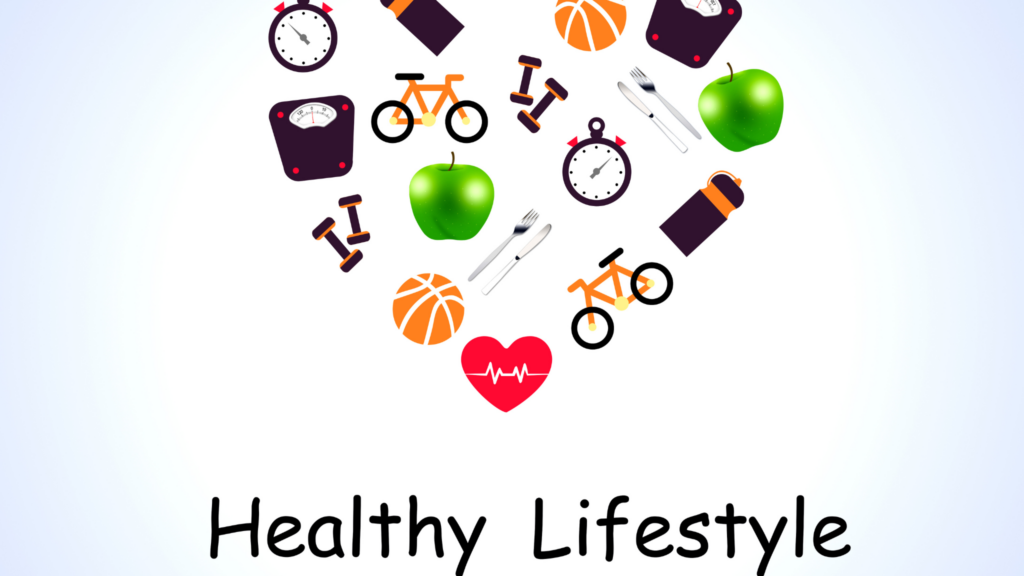
Heart disease is a silent killer that claimed almost 700,000 lives in the USA in 2021 alone- accounting for around 20% of deaths. Many people suffering from high blood pressure, high cholesterol, diabetes, and other problems that create an increased risk of heart disease should consider making heart-healthy lifestyle changes.
People often believe that a healthy lifestyle for a healthy heart is beyond their reach, but there are small, manageable changes anyone can make to reduce the strain on their heart and blood vessels.
Before we get started, let’s address one of the main questions people ask: are lifestyle changes really going to make a difference to my high cholesterol and blood pressure? The answer is yes.
Most of the leading heart disease risk factors are directly tied to the simple everyday choices people make. What we eat, drink, and do with our spare time can all have a significant impact on increasing or decreasing our risk for heart disease.

Here are five simple and attainable ways to change your habits and reduce your risk of heart disease.
It may not be what people want to hear, but too much alcohol does blood cholesterol and pressure any favors. We are not saying you need to cut it out altogether, but limiting your alcohol intake is an important lifestyle change if you want a healthy heart.
Excessive alcohol consumption is predominantly tied with liver disease, but it also contributes to several other major issues. It is high in sugar and is known to increase blood pressure, produce irregular heartbeats, and lead to higher heart attack and stroke risks. There is some debate about what the limit should be, but sticking to one drink per day at the most for women and two for men is a good place to start.
Physical activity is one of the best things you can do for your heart. It doesn’t need to be long stretches of intense workouts, but regular physical activity in a way that is sustainable for you should be a priority.
Body weight and fat build-up around arteries is a major risk factor for heart disease in the US. Obesity is technically one of the most deadly health problems in the country. Many people do little to no exercise all week, and it is often down to a misunderstanding about what can help.
Committing to 30 minutes of moderate-intensity physical activity per day is the first step toward a healthier lifestyle. Even if you get into brisk walking (fast enough to get your heart rate up) or a light at-home workout once a day, it is better than nothing- and can still lower blood pressure, reduce stress, and get your heart working.
Making a small effort is better than not trying, and it can be a stepping stone toward more intense or longer-lasting sessions that do more for your body. Starting is often the most difficult part, so don’t be scared to look for a little help from a health care professional or fitness expert to get you going.
Maintaining a healthy weight is not always as easy as it sounds- especially for those who have already established unhealthy eating habits. If you find yourself continuously trying new diets and never being able to stick to them, you are not alone.
That said, when it comes to looking after your heart, foods that are high in saturated fat, trans fat, sodium, and sugar are all part of the problem. High blood sugar and high blood cholesterol are two risk factors that can (in most cases) be tackled with a heart-healthy diet.
The trick to starting a healthy eating pattern is to be realistic and set yourself achievable goals rather than setting yourself up to fail. Rather than jumping straight to an extreme diet (unless advised by a medical professional), it is more manageable to start with simple substitutions. Here are a few tips to get started.
Ok, we know this one may seem impossible to some, but it can be done. If there was ever the right motivation to kick the habit, it is the life or death potential of heart disease.
Smoking is one of the worst things you can do for your heart. The list of heart problems caused by smoking is impressively bad. If you don’t smoke already, don’t start. If you do, there is plenty of excellent support available to help you get out from under it.
It’s not all about the things you put into your body- your mind also plays a role. There are plenty of studies that show a close correlation between stress and high blood pressure, and sleep has a direct influence.
One of the first things people with coronary heart disease are told to do after a heart attack or stroke is to avoid stressful situations and prioritize time for rest. The body works all kinds of miracles while you are sleeping. Without the right amount, your mood, habits, and internal systems fall out of sync. Stress doesn’t only put additional pressure on your body- it is also a leading trigger for all the bad habits that lead to heart disease in the first place.

People are often forced into lifestyle changes after heart attack and stroke incidents or scares, but isn’t it better to make them before it gets that far? Get the change started with these five simple heart-healthy habits.
Copyright © CardiacKrock.com. 2022 All rights reserved. | Sitemap